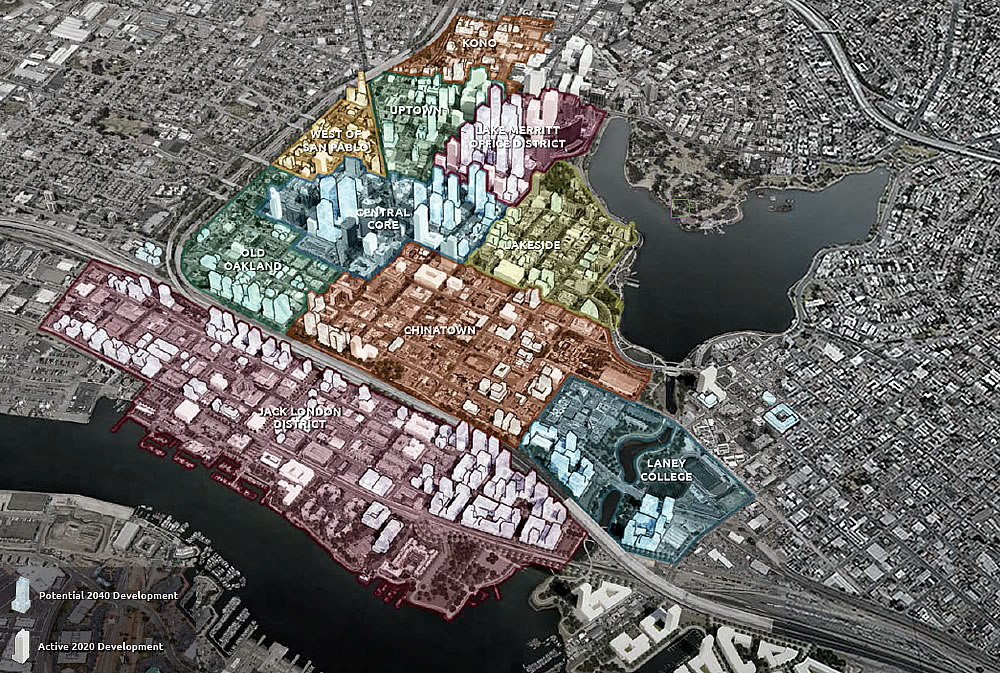The weighted average asking rent for an apartment in Oakland has been holding at around $2,300 a month over the past few weeks, which is up around 2 percent from its pandemic-era low but still 14 percent lower than at the same time last year and 23 percent below a 2016-era peak of closer to $3,000 per month.
And having peaked in the first quarter of the year, the net number of apartments listed for rent in the city has since dropped around 10 percent. That being said, there are still twice as many apartments on the market right now than there were at the same time last year, but that’s down from 150 percent more, on a year-over-year basis, four months ago.

The post title says the “Vacancy Rate in Oakland Drops,” but the post doesn’t address the vacancy rate. Source?
Drop in the vacancy rate is implied based on listing activity, which has dropped 10 percent while asking rents have inched up.
Hmm.. In your methodology, when an institutional LL that can impact listing data, say someone like Greystar, decides to list twenty units out of two hundred actual vacancies at a location, what is the inferred vacancy rate? When the thousands of imminent units at Trinity, the Hub, and elsewhere come on line over the coming months, if two hundred units were offered instead of two thousand units, what would be the effect, if any, on the inferred vacancy rate?
We’re acutely aware that the number of units listed for rent doesn’t equal the number of vacant units in the absolute. But when the net number of units listed for rent drops, in conjunction with rents having stabilized, the implied vacancy rate is dropping as well with net absorption of the underlying inventory.
Ok, question here about your methodology. Has your baseline changed with all the new supply added over the last few years? Trinity is about to add another 500 or so units, I believe, in the last stage on Market. Will this have an impact on your baseline?
Just Wait until the crime rate takes up even more. Not to mention, as people head back to the office, this will free up more of the single-family home inventory, and help to level out the multifamily market. Thank you to the progressive City council members who voted to actually defund the police, freaking morons.
Oakland just increased its two year police budget by $9 million over the previous one.
Yes, but it was less of an increase than had been recommended. Apparently conservatives – assuming they’re most likely to object (tho of course feelings on the issue can cross the spectrum) – have adopted the definition of “cut” that liberals have long used.